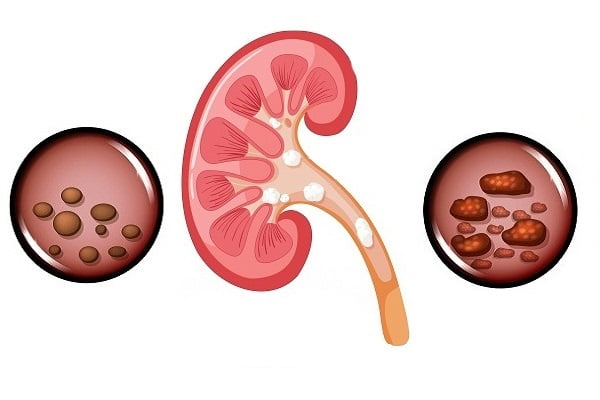Calcium renal calculi, commonly known as calcium kidney stones, are solid deposits of minerals and salts that form in the kidneys. They are primarily composed of calcium oxalate or calcium phosphate and are a prevalent cause of urinary tract discomfort. Understanding their formation and effective prevention strategies can significantly reduce recurrence and improve kidney health.

Risk Factors for Calcium Renal Calculi
- Dietary Factors:
- High oxalate intake (e.g., spinach, rhubarb, nuts).
- Excessive sodium consumption, which increases calcium excretion.
- Low calcium intake, paradoxically leading to higher oxalate absorption.
- Dehydration:
- Reduced urine volume concentrates minerals in the kidneys.
- Medical Conditions:
- Hyperparathyroidism.
- Renal tubular acidosis.
- Chronic conditions like diabetes or gout.
- Genetics:
- Family history of kidney stones increases susceptibility.
- Lifestyle Choices:
- Sedentary habits.
- High-protein diets.
Diet and Hydration Strategies for Prevention
Optimize Calcium Intake
While it may seem counterintuitive, adequate dietary calcium binds oxalate in the gut, reducing its absorption into the bloodstream and eventual deposition in the kidneys.
- Recommended Sources: Low-fat dairy, fortified plant-based milk, and calcium-rich vegetables like kale and broccoli.
- Daily Intake: Adults typically require 1,000–1,200 mg/day.
Limit Oxalate-Rich Foods
Reducing consumption of high-oxalate foods can minimize stone formation.
- High-Oxalate Foods: Spinach, beets, nuts, tea, and dark chocolate.
- Preparation Tips: Boiling certain vegetables can lower their oxalate content.
Stay Hydrated
Maintaining sufficient urine output dilutes stone-forming substances.
- Daily Hydration Goal: At least 2.5–3 liters of water.
- Monitor Urine Color: Pale yellow indicates proper hydration.
- Enhance Fluid Intake: Incorporate citrate-rich beverages like lemon or orange juice.
Moderate Sodium Intake
Excess sodium promotes calcium excretion, increasing the risk of stone formation.
- Limit to: <2,300 mg/day (general population) or <1,500 mg/day (high-risk individuals).
- Tips: Avoid processed foods and check labels for hidden sodium.
Manage Protein Consumption
High animal protein intake increases uric acid levels and decreases citrate, both contributing to stone formation.
- Alternative Sources: Plant-based proteins like legumes and tofu.
Lifestyle Modifications
Regular Exercise
Physical activity helps regulate calcium metabolism and reduces sedentary risks.
- Recommended Activities: Walking, yoga, or swimming.
- Frequency: At least 150 minutes per week.
Stress Management
Chronic stress can indirectly affect kidney health by altering hormonal balance.
- Techniques: Meditation, deep breathing exercises, or mindfulness practices.
Role of Medications in Prevention
In certain cases, medications may be prescribed to prevent recurrence:
- Thiazide Diuretics: Reduce calcium excretion in urine.
- Potassium Citrate: Alkalinizes urine and inhibits stone formation.
- Allopurinol: For patients with elevated uric acid levels.
Note: Always consult a healthcare provider before initiating medications.
Monitoring and Follow-Up
Regular Check-Ups
- Conduct periodic urine and blood tests to monitor risk factors.
- Imaging studies (e.g., ultrasound) may be recommended for recurrent stone formers.
Dietary Logs
- Maintain a food diary to identify triggers and ensure adherence to dietary recommendations.
Collaborative Care
Work with dietitians and urologists to develop personalized prevention plans.